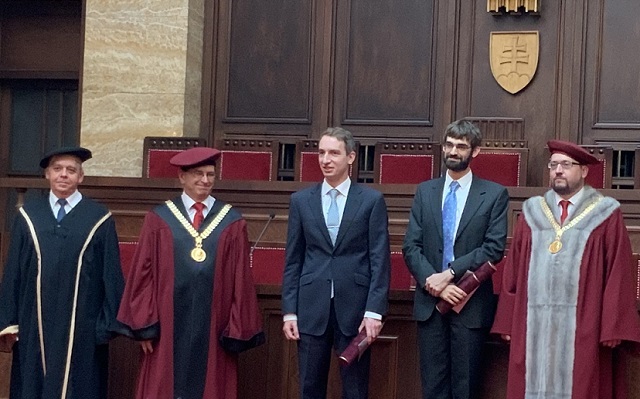2019 was a busy year for the School of Business, Economics and Informatics. Here are some of our research highlights.
![]()
Improving Diversity on Sport Boards

Dr Richard Tacon and Dr Geoff Walters from the Department of Management worked with Sport England to improve the diversity of board members in the sport and physical activity sector. The programme, unveiled in September, follows a series of studies demonstrating that sports governance lacks diversity, particularly with regards to ethnicity and disability.
Richard and Geoff have designed and implemented training materials as part of the initiative, which will identify and develop a pool of suitable candidates from under-represented groups. The intention is that sports organisations will then be able to turn to these people when recruiting for new board positions.
Diagnosing Gaming Disorder

Researchers led by Bruno Schivinski, Lecturer in Marketing, developed the first psychological test to check for ‘gaming disorder’, a new type of mental illness now recognised by the World Health Organisation.
Now accessible online, the test provides participants with feedback on their video game habits in comparison with the rest of the population. Research is ongoing to understand the point at which gaming becomes a health problem and the factors which contribute to the development of gaming disorders to promote responsible gaming.
Sticking up for Parents in the Performing Arts

Academics from the Department of Organizational Psychology developed a survey of workers and work-life balance in the performing arts in partnership with Parents and Carers in Performing Arts (PiPA).
Over 2500 UK workers from the performing arts, including 1000 parents and carers, took the survey. It found that 43% of performing artists who left their careers did so because they became parents. Carers pay a significant penalty in terms of well-being and remuneration in order to maintain a career in the performing arts and are far more likely to leave the industry than non-carers, leading to a drain in talent and reduced diversity in the arts. Professor Almuth McDowall, Head of Department, added her voice to the call for change alongside leading figures in the sector such as actor Cate Blanchett and singer Paloma Faith.
Understanding Text Data

Researchers from the Department of Computer Science and Information Systems developed a tool to simplify the process of understanding and using data from text. Called Samtla API, the new service can automatically annotate words and phrases from digital text documents with named entities and sentiments using machine learning and text mining technologies.
Spearheaded by Dr Mark Levene, Dr Martyn Harris, and Dr Andrius Mudinus, the initiative grew in response to the growing need for easily understandable annotations on the large volumes of text data, generated by media, businesses and individuals all over the world.
A Prizewinning Contribution

In August, Dr Alexey Pokrovskiy from the Department of Economics, Mathematics and Statistics was awarded the European Prize in Combinatorics. The prestigious award is made once every two years, recognising excellent contributions in Combinatorics, Discrete Mathematics and their Applications by young European researchers aged 35 or under.
Adapting to Climate Change

Strategic management experts from the Department of Management and the Cass Business School at City, University of London found that greater collaboration between the insurance industry and state policy makers could improve society’s ability to recover from disasters linked to climate change.
Using insurance is a step away from crisis towards risk management, strengthening socio-economic resilience under a changing climate. Birkbeck’s Dr Konstantinos Chalkias, the Cass Business School’s Professor Paula Jarzabkowski and their co-authors put forward seven recommendations to the Global Commission on Adaptation to maximise the benefits of insurance for climate adaptation.
Supporting Sustainable Return to Work following Mental Ill-health Absence

Dr Jo Yarker from the Department of Organizational Psychology and Professor Karina Nielsen from the University of Sheffield have been researching how to support employees who are returning to work following mental ill-health absence.
In the UK alone, stress, anxiety or depression accounts for 57% of all working days lost to ill-health in 2017-18. Yarker and Nielsen developed a toolkit for employees, colleagues, line managers and HR professionals to support individuals to return to and stay in work.




